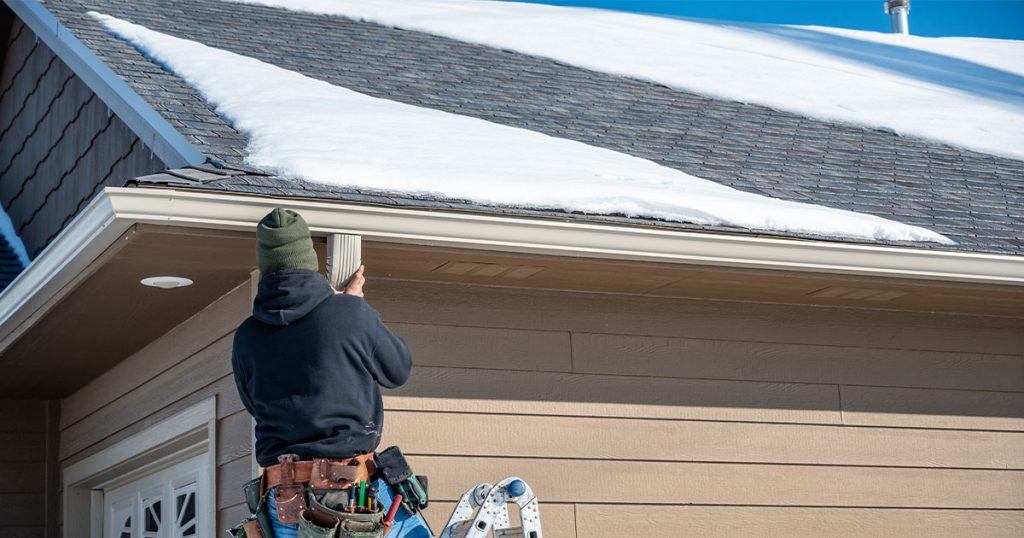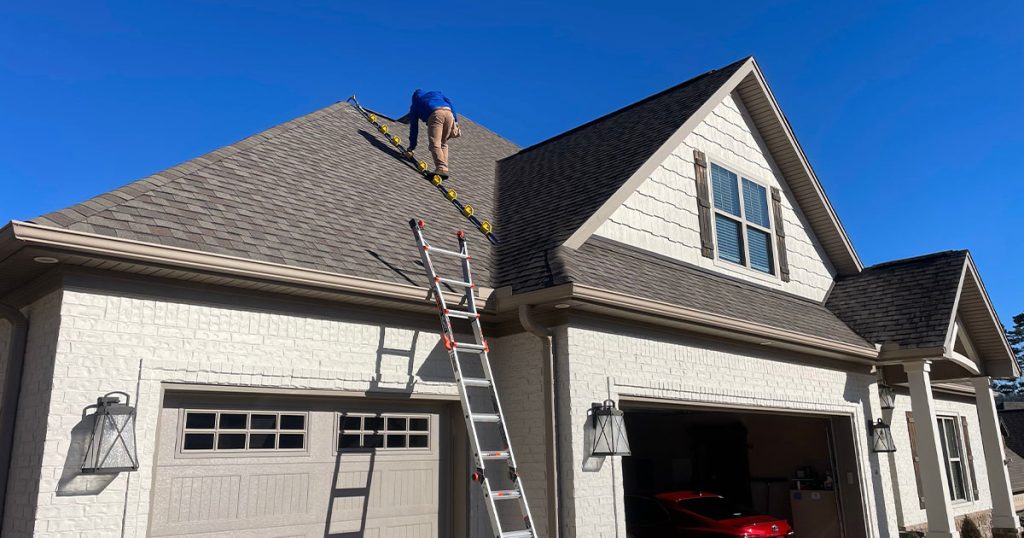Every year, thousands of homeowners face costly repairs because they didn’t spot roofing problems early enough. Imagine a small leak, hidden under shingles, quietly soaking into wood beams until suddenly you’re staring at a sagging ceiling and a $10,000 repair bill. The good news? This situation is preventable.
At Single Ply Roofing Experts, we’ve spent decades inspecting, repairing, and maintaining residential and commercial roofs. One of the most common questions homeowners ask us is: How often should you have your roof inspected? In this guide, we’ll answer that question thoroughly, explain what inspections involve, and share insider maintenance tips so you can protect your home with confidence.
What Does a Roof Inspection Entail?
When you hear “roof inspection,” you might picture someone glancing at shingles from the sidewalk. In reality, a professional roof inspection is a detailed process designed to catch even the smallest issues before they snowball into major problems.
During a residential roof inspection, our experts check:
- Shingles or roof membranes: looking for cracks, curling, blisters, or missing pieces.
- Flashing and seals: ensuring water can’t sneak in around chimneys, skylights, or vents.
- Gutters and downspouts: checking for blockages and proper drainage.
- Interior signs: spotting water stains, mold, or sagging in attics or ceilings.
By thoroughly examining these areas, we can give homeowners peace of mind and a clear maintenance plan.
Why Regular Roof Inspections Are Important
Your roof is your home’s first line of defense. Without regular inspections, you’re leaving it vulnerable. According to the National Roofing Contractors Association (NRCA), routine inspections can extend your roof’s lifespan by up to 50% when paired with proper maintenance.

Here’s why inspections matter:
- Preventative Care Saves Money: Fixing a cracked shingle today might cost $150. Waiting until it causes water damage could cost thousands.
- Weather Damage Detection: After heavy storms, wind or hail can cause hidden damage that’s only visible to trained eyes.
- Insurance Compliance: Many insurance policies require documented roof inspections to honor storm-damage claims.
- Peace of Mind: Knowing your roof is sound helps you sleep better, especially during storm season.
At Single Ply Roofing Experts, we’ve seen firsthand how a simple inspection prevented families from major financial stress.
How Often Should You Have Your Roof Inspected?
Now to the big question: How often should you have your roof inspected? Our expert recommendation depends on your roof’s age, material, and local weather. Here’s a reliable breakdown:
- Annually: Every homeowner should schedule a professional inspection at least once a year.
- After Major Storms: High winds, hail, or heavy snow? Get your roof inspected immediately afterward.
- For Older Roofs (15+ years): Twice a year inspections (spring and fall) help catch wear before it turns critical.
- Before Selling or Buying a Home: Inspections ensure you know the roof’s true condition.
Rule of Thumb: Most experts (including us) agree: once a year minimum, plus after any severe weather event, is the safest bet.
Common Mistakes to Avoid with Roof Inspections

Even well-meaning homeowners can make costly errors when it comes to roof inspection frequency. Here are pitfalls we’ve seen over the years:
- Skipping Regular Checks: “Out of sight, out of mind” is dangerous when it comes to your roof.
- DIY Inspections: Walking on roofs without training is risky and often misses subtle damage.
- Ignoring Small Issues: A tiny crack today is a major leak tomorrow.
- Delaying Maintenance: Postponing an inspection after a storm is one of the fastest ways to shorten your roof’s life.
By avoiding these mistakes and scheduling professional inspections, you’ll save money and extend your roof’s lifespan.
Expert Tips for a Successful Roof Inspection
Our decades in roofing have taught us some powerful lessons. Here are our insider roof maintenance tips:
- Document Everything: Keep photos and notes from each inspection for insurance claims.
- Schedule in Mild Seasons: Spring and fall are ideal for catching storm damage and preparing for extreme weather.
- Work with Certified Pros: Look for licensed, insured roofers with a strong track record.
- Combine with Gutter Cleaning: Inspections and gutter maintenance go hand in hand.
- Follow a Roof Inspection Checklist: Don’t just “eyeball it.” A checklist ensures no detail is missed.
For more seasonal insights, check out our guide on 4 Spring Cleaning Maintenance Tips for Your Commercial Building Rooftop to keep your property in peak condition year-round.
FAQs about Roof Inspections
Can I inspect my roof myself?
You can spot obvious issues from the ground, but a professional residential roof inspection is safer and far more thorough. Experts have tools and training to detect hidden problems.
What signs indicate I need an immediate inspection?
Call a professional if you see missing shingles, water stains on ceilings, sagging gutters, or after severe storms. These are warning signs of damage.
How much does a professional roof inspection cost?
Costs vary, but on average inspections range from $150–$400. Many roofing companies, including ours, credit inspection fees toward repair costs.
Are roof inspections covered by insurance?
Routine inspections are usually a homeowner expense. However, if an inspection is tied to storm damage, your insurance may cover the costs—especially if it leads to a claim.
How long does a roof inspection take?
Most inspections take 45–90 minutes depending on roof size and complexity. Older roofs or storm-damaged roofs may take longer.
Key Takeaways on Roof Inspection Frequency
So, how often should you have your roof inspected? The answer: at least once a year, plus after major storms, and twice yearly for older roofs. By following these guidelines and working with trusted professionals like Single Ply Roofing Experts, you’ll extend your roof’s life, protect your investment, and avoid costly repairs.
Don’t wait for problems to appear—be proactive. Contact Single Ply Roofing Experts today to schedule your next roof inspection. Your home deserves the best protection.

